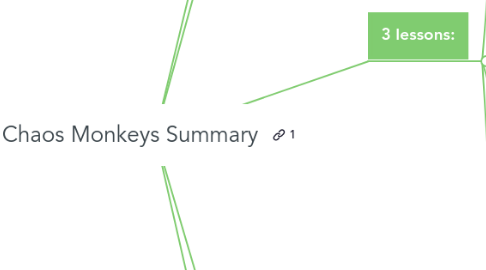
1. 1-Sentence-Summary:
1.1. Chaos Monkeys is a fun behind-the-scenes look that lifts the veil on some of the weird, mysterious and sometimes questionable practices going on behind closed doors of mega startups in Silicon Valley.
2. Favorite quote from the author:
2.1. "Ideas without implementation, or without an exceptional team to implement them, are like assholes and opinions: everyone's got one." - Antonio García Martínez
3. 3 lessons:
3.1. Startup employees sometimes enter fake marriages, just so they can move to SF for work.
3.1.1. In Europe in the 18th century, people who hadn’t won the ethnic and cultural lottery, for example by being born poor or with a certain racial background, had few options.
3.1.1.1. There was no way for a peasant to become king, or for a Jew to just shed his religion, if Jews were being discriminated against in his country.
3.1.2. But once the first European settlers had made it to America, a new hope arose.
3.1.2.1. People could try to flee their country, make the dangerous trip to the new world and start fresh.
3.1.2.2. To do so, many happily entered gruesome deals, like serving as a slave for the master who’d take them across the big pond.
3.1.3. Now H-1B visas, which are the type of visas non-immigrant foreign workers require in the US, are almost impossible to get.
3.1.3.1. Only 8% of all 200,000 applicants trying to get one to work in Silicon Valley in 2013 received one.
3.1.3.2. Even worse, if they’re then fired or their startup fails, the visa expires, so they usually accept low salaries and bad working conditions.
3.1.3.3. Plus, it takes five years before they can apply for a green card.
3.1.4. To avoid all this, some startup employees trying to move to San Francisco or the Valley enter fake marriages, like one of the author’s co-founders, Argyris.
3.1.4.1. Since his long-time girlfriend was getting a PhD in the US, being her husband would qualify him for an F-2 student-spouse visa and allow him to stay in the US – so they married a bit earlier than they would have
3.2. If you really want to build a company that makes it, there’s no way you can’t be crazy and obsessed.
3.2.1. The year Antonio spent as the CEO of AdGrok, his own startup providing software to optimize Google Ads, before they sold it to Twitter, was shaped by very hard work
3.2.2. In the end, AdGrok sold to Twitter for $5 million, but it took a fair share of insanity to get there.
3.2.3. The main word used to describe startup founders in this context (by both themselves and those close to them) is obsessed.
3.2.3.1. Until they’ve made it, whatever that means to them, nothing else matters.
3.2.4. That’s not just for startups.
3.2.4.1. Even if you “just” want to build a normal business, you have to be crazy enough to refuse to give up on it until it works.
3.2.5. The thing about being crazy this way is: they don’t mind.
3.2.5.1. They’re in for the long run, the big reward, the payoff they know will come – and they’d rather die trying than not go for it.
3.3. Facebook’s ninja security team acts in the dark, because it’d be scary to reveal the kind of stuff they take care of.
3.3.1. People working at Facebook’s security team looks at scams, violent status updates, and weird, pornographic content all day long, flag it and then remove it from the system.
3.3.1.1. Even worse, you’ll get zero credit for your work, because if you do it well, no one will ever know about it.
3.3.1.2. Only if you screw up and something slips through the cracks can you expect to get flack.
3.3.2. To deal with this, the security team has created an internal group called Scalps@Facebook, which lists all taken down photos and profiles, so they can at least commend each other’s work.
3.3.3. Apart from this group, keeping a closed lid on this line of work is probably a good idea:
3.3.3.1. If people knew how many scammers and sex offenders hang around on Facebook, they’d probably stay away from the platform altogether – but again, this is just one of the many dirty secrets of Silicon Valley.
